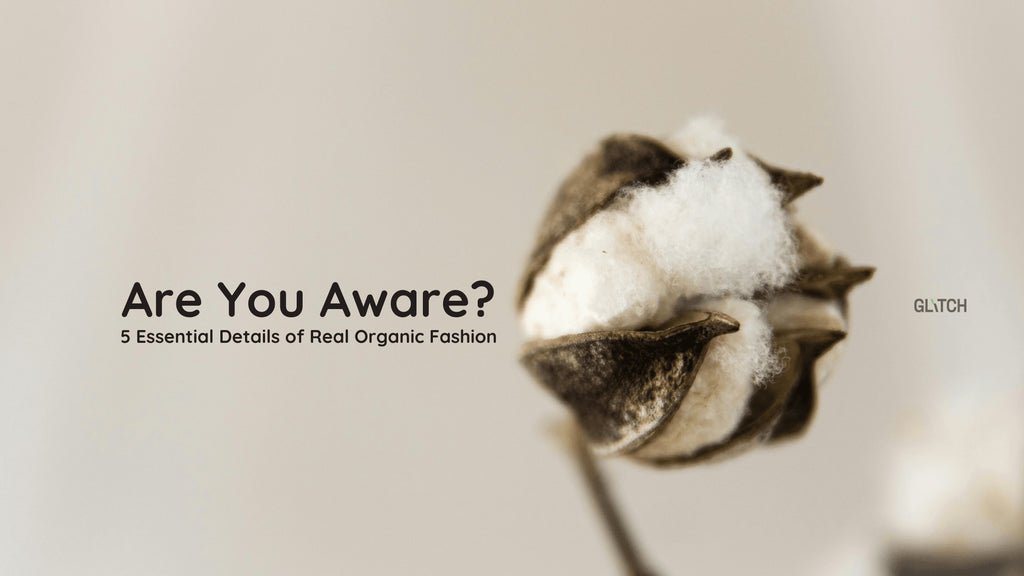5 Essential Details of Real Organic Fashion—Are You Aware?

In a world where the term "organic" is tossed around as a buzzword, understanding what truly defines organic fashion is essential. At Glitch, we believe in transparency, integrity, and creating a better future for fashion—one consciously crafted piece at a time. Let’s break it down into the five essentials you should know about real organic fashion:
1. Certified Organic Fabrics Are Key
Not all "organic" labels are created equal. Real organic fashion uses certified organic materials like organic cotton, bamboo, or hemp that adhere to strict environmental and ethical standards. For example, Global Organic Textile Standard (GOTS) certification ensures no harmful chemicals or pesticides are involved in growing the raw materials. At Glitch, our bamboo cotton fabrics are sourced sustainably, making sure that your skin and the planet stay safe.
2. Chemical-Free Dyeing Processes
Most conventional fabrics undergo harsh chemical dyeing processes that release toxins into water bodies and harm ecosystems. True organic fashion opts for azo-free and non-toxic dyes, which are gentle on your skin and eco-friendly. This ensures that every Glitch garment not only feels soft but is free from harmful residues that can irritate sensitive skin.
3. Fair and Ethical Production Practices
Organic fashion doesn’t stop at fabric—it’s about people too. Ethical brands prioritize fair wages, safe working conditions, and sustainable production methods. Real organic fashion stands against fast fashion’s exploitative practices. At Glitch, we work with partners who share our vision of dignity and respect for every individual involved in crafting your clothes.
4. Longevity and Durability
Sustainability isn’t just about how clothes are made; it’s about how long they last. Organic fabrics, when crafted with care, tend to be more durable and retain their quality over time. This means fewer replacements and a lower impact on the environment. Our bamboo cotton t-shirts, for example, are designed to stand the test of time—keeping their softness and shape wash after wash.
5. A Holistic Approach to Sustainability
Real organic fashion considers every stage of the garment’s lifecycle—from raw material sourcing to the end-of-life impact. Biodegradable fabrics, minimal packaging, and carbon-conscious shipping are just a few elements of a truly sustainable fashion model. Glitch embodies this holistic approach by ensuring that every decision we make aligns with our commitment to the environment.
Why It Matters
Investing in real organic fashion is not just about buying clothes; it’s about making a choice for a healthier planet and a better tomorrow. By choosing Glitch, you’re not just dressing better—you’re living better.
Are you ready to make the switch to real organic fashion?
#Glitch #Sustainable #OrganicFashion #GlitchDifference #Colorful #Thoughtful

